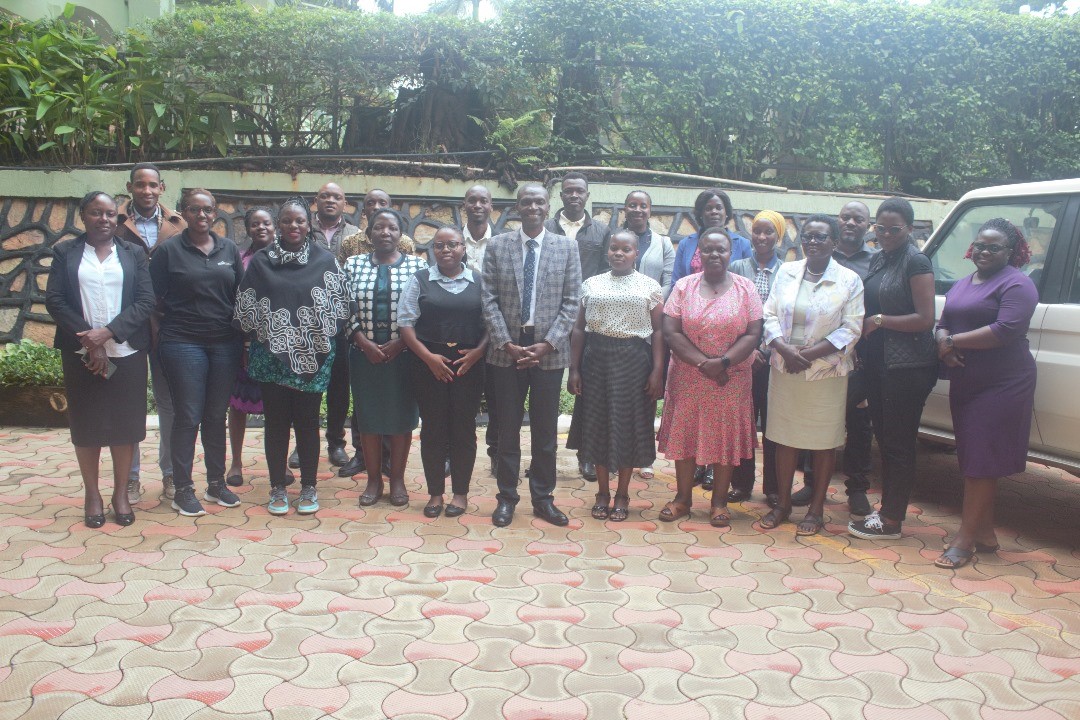
In order to enhance food security, reduce yield gaps and enhance climate change adaptation of smallholder farmers, stakeholders have called for the need to include incentives.
This was during a one-day Stakeholders workshop on the Digitalized Extension Content, extension delivery and business models hosted at the Arch Hotel in Ntinda, Kampala.
Among other targets, the workshop aimed at identifying and suggesting effective remedies to specific challenges and gaps within the extension systems in Uganda as cited.
However much the government has always made efforts to reach to the smallholder farmer through different initiatives, a number of gaps have always remained unrealized.
Speaking at this event, the technical manager in charge of Markets and Value Chains at Farm Africa, Caroline Asiimwe, noted that incentives for Village Based Agents (VBAs) are a critical part to ensure the smooth running of agricultural extension services.
“One extension worker cannot adequately serve over 5,000 farmers in a sub-county. As private extension service providers move to supplement the government extension workers, their capacity and facilitation has to be built. It can be commission on the sale of inputs, transport or any other way that is clearly calculated. This is what we ought to address,” said Asiimwe.
She added that VBAs can easily adopt best practices if trained to give the basic agronomic practices farmers need another valid reason why particular incentives have to be understood to enable VBAs to train farmers seasonally.
Once this is done, Asiimwe believes that the VBAs will continue conducting trainings, farmers will continue accessing the best agronomic practices and obviously continuous yields.
On the other hand, led by the Uganda Forum for Agricultural Advisory Services (UFAAS) Chairman Dr. Richard Miiro, stakeholders unanimously agreed that content dissemination and access have to be ultimately dealt with.
As suggested, this will majorly be achieved through translating the available content into different local languages that can as well be accessed by farmers in one place.
“There are many written materials to guide farmers but the challenge is that they are not in one place making them hard to find. We envision to translate this material into local languages and to ascertain that they are accessible by every farmer, extension workers and interested persons,” said Dr. Miiro.
This was in agreement with the event’s goal of ensuring targeted and bottom-up interventions that address the systematic challenges within extension systems in specific countries.
Dr. Miiro emphasized that UFAAS is determined to work with the Ministry of Agriculture, Animal Industry and Fisheries (MAAIF) to make sure that these materials are standardized and availed in one place to avoid developing the same materials again and again.
Relatively, the CEO Uganda Forum for Agricultural Advisory Services (UFAAS), Beatrice Luzobe urged all the stakeholders to work with collective efforts since the project has come in a timely manner.
Stakeholders believe that once all this investment is appreciated, it will help them to design realistic models, have quality teams to put all that processing together and also to prepare the farmers.
The project was fully funded by the Alliance for a Green Revolution in Africa (AGRA) together with the Africa Forum for Agricultural Advisory Services (AFAAS) in partnership with UFAAS.
This followed a significant need to bring together the different Agricultural Extension and Advisory Services (AEAS) actors/stakeholders from the different sectors share and discuss issues around the content for the last mile, capacity development, implementing best-fit extension models, among others.
This project also aims at strengthening the institutional capacity of extension department and ministries at large, through sustainable and inclusive last-mile delivery model of agri-food systems.
What others say;
Jordan Otim – Digital Extension Officer, Omulimisa
Farmers want to access this information but are not willing to pay because they believe it is supposed to be free. Even the government extension workers in the field are not fully motivated and sometimes lack funds to go to the field. The idea of a repository is such a timely remedy in availing all the necessary materials in one place. are actually more or less left redundant.
Victoria Mbigidde – NARO Knowledge Management Officer
A lot of work has been done when it comes to agricultural extension – developing content and creating knowledge sharing platforms. We need to make sure that what is available is known. We need a coordination platform where we have a one-stop center of all existing initiatives such that someone can be referred when in need of specific and legitimate information.
Monalisa Mutesi – Country Manager, ISDA Africa
The idea of a repository has been an eye opener to us since we have a lot of information to give to the farmers. We are looking forward to partner with other stakeholders to provide virtual agronomic services.
